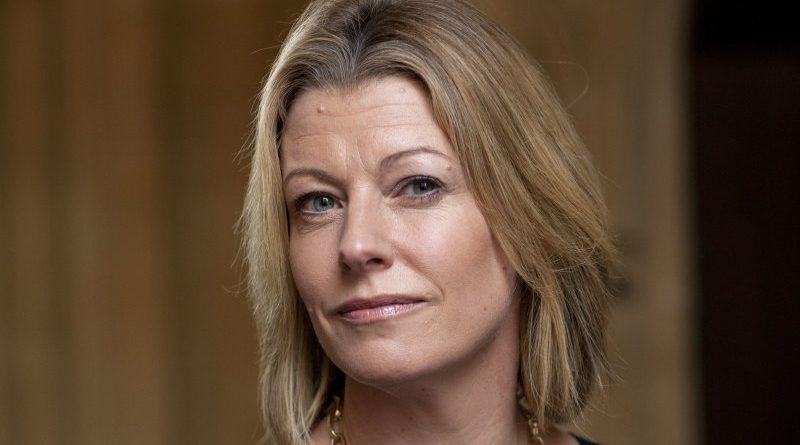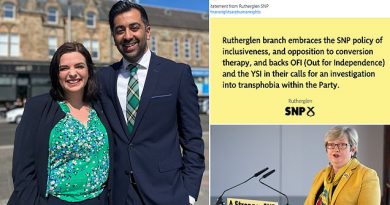Wealthy British families pledge to make slavery reparations
Save articles for later
Add articles to your saved list and come back to them any time.
More than 100 of Britain’s most distinguished families have signed up to a campaign to provide reparations for slavery, it can be revealed.
Heirs of Slavery was founded by Laura Trevalyan, the former BBC correspondent, who has pledged £100,000 ($195,000) of her own money to fund projects aimed at helping the descendants of slaves in Grenada, where her aristocratic forebears owned plantations.
Laura Trevelyan.Credit: Getty
More than 100 British families have signed up to Trevalyan’s campaign, including serving politicians, City traders, and members of the landed gentry.
These heirs of powerful and storied families from Britain’s imperial history are soon set to convene to establish how they can practically atone for the actions of their slave-owning ancestors.
Speaking to The Telegraph in Grenada, Trevelyan explained that this was the start of a growing movement, saying: “Over 100 have come to us. Over 100 descendants of slave owners in the British Caribbean.
“Those are people who want to know how to support our work, how to research their ancestry, how to go about addressing this and going about repair.”
She added: “There is all of this momentum to towards repertory justice, whatever it means, in the wake of Black Lives Matter, it’s a question of how to channel all this moment and all this energy.”
Prince William and Princess Kate in Kingston, Jamaica in 2022, where Britain has had a long history of slavery.Credit: Getty
The Heirs of Slavery group aim to follow the lead of Caricom (Caribbean Community), a political and economic union of 15 member states in the region, which has pushed for reparations and devised a 10-point plan for how they should be made by European powers. Their plan includes increasing education on slavery, formal apologies, and cash for development.
A total of 125 families whose ancestors owned slaves have contacted the group. The vast majority are based in Britain, but a small number live in the US, Australia and New Zealand.
In Jamaica, the Duke and Duchess of Cambridge faced protests over slavery reparations.Credit: AP
Alongside the co-founders of the group, which include David Lascelles, the Earl of Harewood, and Charlie Gladstone, a descendant of Britain’s four-time prime minister, Heirs of Slavery has been contacted by former Tory MP Antoinette Sandbach, whose ancestors built vast estates with slave wealth.
It is understood that a large percentage of the families now attached to Heirs of Slavery have links to slave plantations in Jamaica, Barbados and Guyana.
Trevelyan, who has been in Grenada to observe how her own financial pledge might be spent, said it is “no coincidence that wealthy families today are descended from those who gained their wealth through slavery”.
She added that large families might need time to “get their ducks in a row” and decide what they want to do collectively. An inaugural conference of Heirs of Slavery is set to take place in London in November to help decide what the families will do.
This will be done with the help of Reparations Commissions from individual Caribbean states, who will be asked to offer guidance on what form reparations could take, and where they will have the most benefit. Funding for development has been a key demand from chairs of these commissions.
The Gladstone family recently made a formal apology in Guyana, and it can be revealed that the Trevelyans have approached the Charity Commission to establish the Trevelyan Grenada Reparations Fund so future generations of the family can continue to offer reparatory justice, a path other families could follow.
It is understood that other heirs are only just beginning to look into their ancestral links, including Sandbach, who has called for records of her family history to be digitised. One strand of the Heirs of Slavery group’s work will be seeking to make personal family records public to help people in the Caribbean better understand their history.
Britain had extensive colonial possessions in the Caribbean, alongside the French and Dutch. The 15 Caricom member nations have demanded reparations from European countries to address the wealth that was extracted from their countries through slavery, and underdevelopment prior to independence, with a 10-point plan on how to do this issued in 2014.
Telegraph, London
Get a note directly from our foreign correspondents on what’s making headlines around the world. Sign up for the weekly What in the World newsletter here.
Most Viewed in World
From our partners
Source: Read Full Article






